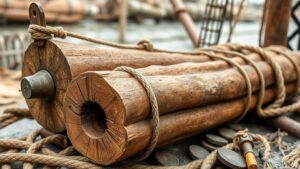How to Build a Comprehensive Treasure Hunting Vocabulary
How to Build a Comprehensive Treasure Hunting Vocabulary
Treasure hunting is more than a hobby; it is a complex blend of history, geology, and archaeology, driven by an ever-evolving lexicon. An understanding of the specific terminology used in treasure hunting can enhance both the experience and the efficacy of the hunt. This article will explore the essential vocabulary, its relevance, and how to systematically build a comprehensive treasure hunting vocabulary that can assist both novice and veteran treasure hunters alike.
The Importance of Vocabulary in Treasure Hunting
A robust vocabulary is crucial in the realm of treasure hunting for several reasons. Firstly, it enables effective communication among peers, allowing hunters to share findings and techniques accurately. Secondly, it aids in the interpretation of historical texts, legal documents, and literature related to treasure locations and laws. Thirdly, specific terms often contain critical information about methods, tools, and the historical context of treasure artifacts.
Core Vocabulary Areas
The terminology related to treasure hunting can be segmented into several core areas. Understanding these areas lays the groundwork for expansive learning within the hobby.
- Archaeological Terms: Terminology such as artifacts, stratigraphy, and site preservation are vital for comprehending the legal implications and ethical considerations of recovering treasures.
- Geological Terms: Terms like geophysical survey, sedimentary layers, and lode inform hunters about the geological conditions favorable for discoveries.
- Detection Technology: Familiarity with terms like metal detector, pinpointer, and depth indicator is essential for using equipment effectively.
- Historical Context: Words like shipwreck, buried treasure, and lost mines are central to understanding where treasures may be found and their significance.
Strategies for Learning Vocabulary
Building a comprehensive vocabulary requires a systematic approach. Here are several strategies that can be particularly effective:
- Read Industry Literature: Engaging with books, magazines, and academic articles specific to treasure hunting will expose learners to proper terminology in context. Notable publications include North American Treasure and Treasure Hunting Magazine.
- Participate in Forums and Online Communities: Websites like Treasurenet.com provide a platform for enthusiasts to discuss, share, and learn from each other, fostering a rich vocabulary through practical use.
- Attend Courses and Workshops: Many organizations offer workshops focused on detecting techniques, historical methodology, and archaeological ethics. For example, the Florida Treasure Hunting Association regularly hosts educational weekends.
- Engagement with Practical Searches: Hands-on experience during organized treasure hunts or metal detecting outings can reinforce vocabulary. Engaging in exchanges with seasoned hunters further contextualizes the terms.
Practical Applications of Vocabulary
Utilizing the vocabulary in practical applications is critical for retention and proficiency. Here are some scenarios where this vocabulary becomes beneficial:
- Effective Communication: A strong vocabulary allows hunters to accurately describe their finds and operational techniques to others, promoting teamwork and collaboration.
- Legal Discussions: Understanding terms related to archaeology and law, such as Cultural Resource Management, is essential for ensuring compliance with regional treasure hunting laws, particularly as seen in the case of the Abandoned Shipwreck Act of 1987.
- Research and Planning: Clear communication within research communities enhances collaborative investigations, such as referencing specific archaeological sites like the Flor de la Mar, a sunken ship that was lost off the coast of Malaysia in 1511 with an estimated treasure of $2 billion.
Conclusion and Actionable Takeaways
Building a comprehensive treasure hunting vocabulary is an ongoing process that significantly enhances the treasure hunting experience. By reading relevant literature, participating in communities, attending workshops, and actively engaging in practical search activities, enthusiasts can develop their vocabularies systematically. Ultimately, a robust vocabulary not only enhances communication but also enriches the treasure hunting experience by providing essential insights into the history, technology, and ethical considerations of this captivating activity.

